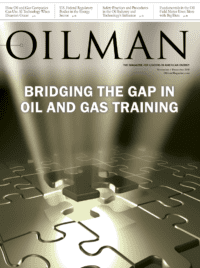Forty-five years ago, October 17, 1973, the Arab oil embargo began as agreed to by the OPEC oil ministers. Since that time, beginning with the embargo, U.S. energy and economic direction has been impacted due to that decision. (The members of the Organization of Arab Petroleum Exporting Countries “OAPEC” initiated the oil embargo.)
A few months later, (1974), The International Society of The Energy Advocates, now known as The Energy Advocates, was founded in Tulsa, Oklahoma. The mission of The Energy Advocates was to educate the public about energy issues and policies, therefore, combating the OPEC stronghold.
This would be the first time the Arab (OPEC) nations would wield the oil. At a time when America was experiencing upheaval and uncertainty on nearly all socio-economic fronts, the energy crisis threatened the very fabric of the American way of life. (It was an honor for me to serve as president of The Energy Advocates from 2003 to 2009.)
Prices reacted almost instantly, and the effects of the Arab oil weapon were felt by citizens across America. Fuel shortages were commonplace during the period of the fall of 1973 to the summer of 1974. This was the first time since World War II that U.S. citizens experienced lines at the pump. This cut in the global supply of oil was devastating to the U.S. economy and soon other western nations experienced high inflation and economic recession.
Now 45 years later, America has turned the corner. The U.S. today has been proven to possess an abundance of both oil and natural gas. There is the rallying cry for American energy.
However, despite this move in the right energy direction, we cannot afford to let up. Our energy security depends on the development of a comprehensive domestic energy policy.
Energy education is more important than ever as we envision America’s energy transformation. National Energy Talk, an Energy Advocate initiative, is a platform of engaging a national dialogue on energy issues, views and solutions. We address the needs, plans and issues. Through discussion, we can create a national energy plan.
National Energy Talk, www.nationalenergytalk.com, is helping lead a dialogue on energy issues, views and solutions through events, publications, videos, audio and online content.
As advisory board chairman of IngenuitE, an Oklahoma City based IT company, I am fully aware that “to maximize potential and attract a new and needed younger workforce, companies of all sizes are going to have to focus on content, analytics, and digital transformation. Large amounts of data from many sources can be collected and analyzed quickly, which leads to being more informed and making better decisions.” U.S. technology, research and workforce will lead the way.
The founders of The Energy Advocates would be proud to know that America is becoming less dependent on OPEC. We are faced with America’s energy dreams and global economic realities. America needs America’s energy and the world needs the U.S. energy industry!
Go to FACEBOOK: National Energy Talk with over 23,000 supporters and growing.
Mark A. Stansberry, energy advisor and corporate development strategist, has been a columnist and contributor for Energies Media since 2014. He is the author of America Needs America’s Energy: Creating Together the People’s Energy Plan and the host of the National Energy Talk podcast. Stansberry served as U.S. Senator Bartlett’s intern/staff member from 1975-76, and led Senators Bellmon and Bartlett’s State Youth Conference in 1976. Stansberry can be contacted through his website.










